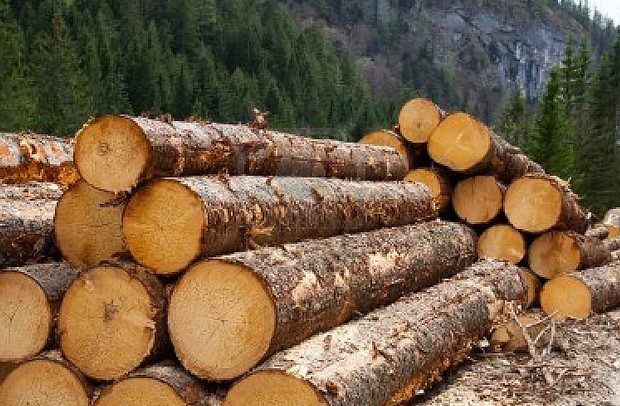GOVERNMENT IS focusing on the local processing of wood in order to reverse the declining trend in the domestic timber industry.
According to Samuel Abu Jinapor, Minister for Lands & Natural Resources, the huge volumes of timber exported has negated the desire to add value to it adding “the number of large scale timber processing companies dropped from sixty (60) in the year 2000 to ten (10) in 2016, and has remained the same till date.”
The minister told Parliament that between 2019 and 2020, a total of 526,61 3.29m3 of timber, worth over €266 million was exported from Ghana, while the domestic market accounted for 678,406.90m3, within the same time frame.
“As at October, 2021, 248,657.909m3 of timber, worth over €113 million had been exported, with domestic trade in the wood species being 392,117.75m3,” he revealed further.
Mr. Jinapor, however, said there were enormous opportunities for investment in value addition in the timber industry, including furniture manufacturing, moulding, doors, parquet flooring, and other related tertiary products for both the domestic and export markets, especially for the ECOWAS sub-regional markets and the African Continental Free Trade Area (AfCFTA).
“These also provide huge opportunities for employment generation for the teaming youth. In order to reverse this declining trend in the domestic timber industry, I constituted a technical team made up of the industry players and experts from the Forestry Commission to develop a comprehensive strategy to revamp the timber industry,” he stated.
He indicated that the committee has presented its report to him, with recommendations for short, medium and long term measures to make the industry more viable and vibrant.
He noted that among the recommendations are the improvement of raw material and inputs supply base including investing in commercial plantation development; increasing manpower development and training for the timber industry to move into value added processing or downstream processing; and financing for industrial development and retooling to be able to process small diameter logs, like teak, which is currently being exported without value addition.
Others are technology, innovation, research and development for industry processing and use of lesser used timber species; developing standards for wood processing; and improving law enforcement.
Mr. Jinapor said his ministry had reviewed these recommendations, and a roadmap for its implementation was being developed, nearing completion.
He added that already, the Forestry Commission has launched two online applications, the digitalised property mark registration and renewal process, to enable loggers register and renew their property marks online, and the electronic wood tracking system, to track our timber, from harvesting to final disposal.
“We have also transformed the Wood Industry Training Centre (WITC) at Ejisu in the Ashanti Region, into Forestry Commission Training Centre (FCTC), to provide specialised training and apprenticeship schemes for wood processing operators and produce timber graders to improve productivity and quality.”
BY Ernest Kofi Adu, Parliament House


